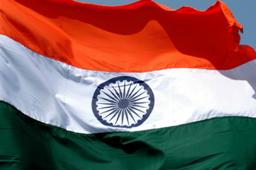 India is paying a heavy cost by not adopting the genetically modified crops in a big way and the farmers should be given opportunity to reap benefits of the technology like in case of BT cotton, experts with the global agri-research bodies ISAAA and ICRISAT have said.
India is paying a heavy cost by not adopting the genetically modified crops in a big way and the farmers should be given opportunity to reap benefits of the technology like in case of BT cotton, experts with the global agri-research bodies ISAAA and ICRISAT have said.
"India, the pioneers among the developing countries is paying a high cost by not going for biotech crops in a big way," founder and chair of International Service for the Acquisition of Agri-biotech Application Clive James said at a global conference on crop biotechnology in Hyderabad.
India, which allowed commercial cultivation of Bt cotton in 2002, has put moratorium on Bt brinjal since February 2010.
International Crops Research Institute for the Semi-arid Tropics director general William D Dar exuded confidence that Indian policy makers would soon realise the advantage of this plant technology and go for it in a big way.
"Indian farmers have already tasted the success from commercial cultivation of Bt cotton. . . why are these farmers not given the opportunities to reap rich benefits by growing other Bt crops," James and Dar said making a strong case for popularisation of GM crops in India.
Both experts described crop biotechnology as a powerful tool to address the food demand of the rising global population.
Terming as 'untrue' the apprehensions spread by activists that GM crops have bad health affects, James and Dar said the Bt crops are safe from science research point of view which is reflected in expanding areas under it world over.
The ISAAA chief said though the Bt crops seeds cost higher than the normal ones, the overall input cost involved in cultivating GM crops is less than the latter as it does not involve deep ploughing and use of expensive fertilisers.
The one-day conference on 'Demystifying crop biotechnology:
Issues and concepts for the Asian media' was organised jointly by ISAAA, ICRISAT, Asian Media Information and Communication Centre and the department of biotechnology on Monday.
There were participants from India, Japan, China, Sri Lanka, Philippines, Singapore, Switzerland, Sweden and some European countries.
The world population is expected to touch 9 billion by 2050, and there is a need to double the production from current level to feed this mammoth population, James said.
"By displaying strong political will, China has approved Bt in cotton, papaya, poplar, tomato and sweet pepper and its farmers are reaping rich benefits," James said emphasising the need for adoption of this crop technology by other countries.
Pakistan also joined the Bt club in 2010, by growing Bt cotton in 2.4 million hectares of land, James added.
Making a strong argument in favour of GM crops, James said the biotech crops have registered a record 87-fold increase in hectares globally between 1996-2010, making it the fastest adopted crop technology in the history of modern agriculture.
"From 1996 (when Bt technology was introduced) to 2010, Bt crop acreage increased by an unprecedented 1 billion hectares, which is equivalent to more than 10 per cent of the total land area of the USA (937 million hectares) or China (956 million hectares)," ISAAA chairman said.
The number of countries planting biotech crops soared to a record 29 in 2010, from 25 in 2009, James said.
Only six countries had adopted the technology in the inaugural year 1996.
The ISAAA chief said by 2015, 40 countries are expected to adopt biotech crops.
USA is the leader in the Bt crop technology with 66.8 million hectares under biotech crops like maize, soybean, cotton, canola, sugarbeet, alfalfa, papaya and squash, he said.
Brazil, Argentina, Canada, China, Paragua, Pakistan and South Africa are the other lead Bt crops countries.
© Copyright 2024 PTI. All rights reserved. Republication or redistribution of PTI content, including by framing or similar means, is expressly prohibited without the prior written consent.

 India is paying a heavy cost by not adopting the genetically modified crops in a big way and the farmers should be given opportunity to reap benefits of the technology like in case of BT cotton, experts with the global agri-research bodies ISAAA and ICRISAT have said.
India is paying a heavy cost by not adopting the genetically modified crops in a big way and the farmers should be given opportunity to reap benefits of the technology like in case of BT cotton, experts with the global agri-research bodies ISAAA and ICRISAT have said.